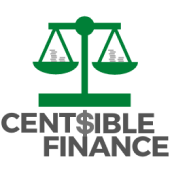
After reading my last letter, some of you have shared that you were just as surprised as I was when I first learned that you don’t necessarily need credit to get approved for a mortgage. If you missed the last issue of Making Cents, you can read it right here. But in short, I mentioned that many lenders look at your Fair Isaac Corporation (FICO) credit score before they decide whether to approve you for things like a mortgage, an auto loan, or a personal loan. However, your credit score isn’t the only way they can make this decision. Basically, if a lender is willing to take the time to sit down and pore over your financial history (employment status and stability, income, on-time bill payments, etc.)—known as manual underwriting—then you can get approved for a loan as significant as a mortgage all the same. And I want to spend more time on credit today not to tell you to do away with all your credit cards, but to do my best at providing you with everything you need to make decisions that are best for you.
Find Out for Yourself First piece of advice: find out things you hear for yourself. As I mentioned last time, for as long as I can remember, I thought that I needed to establish credit history so that one day, I’d have a viable score that would make it easier for me to get approved for a mortgage when I was ready. Now, I thought that because of what I was told. Not because of what I read on my own. Don’t be skeptical whenever someone wants to give you advice. But just know that person may have heard it from someone else, overlooked a few details, or simply misunderstood what they learned. It happens. So, just research things you hear for yourself. For instance, the fact that I’ve shared with you that you don’t need a credit history to be approved for a mortgage… I encourage you to look it up for yourself. I’ll tell you that I looked for more than one source when I first read about this in a personal finance article earlier this year. I’ve actually found that even popular lenders are willing to perform manual underwriting, too. Lenders such as Rocket Mortgage. But my main point is: Don’t just take someone’s word for it. Find out for yourself.
Know Your Habits My second piece of advice: always know your own habits. What I mean by that is, no matter what anyone else says, you know how you are. If you know that you do better saving when you set goals for yourself every now and then, do it the way you know works best for you… even if someone were to tell you saving based on goals doesn’t work. (Although, I strongly believe it does work.) I mentioned before that people are sometimes willing to spend up to 83% more when using a credit card over cash. Additionally, one report showed the average non-cash purchase is $112… as opposed to just $22 with cash. But guess what… If you know you spend less when you don’t have cash in your hand, you don’t need to change your habits. The stats above may be true generally speaking. (I know it’s true for me. I know for a fact that I spend more when I swipe.) But just because it’s true for me and most people, it doesn’t mean it’s true for you. So, just do what is best for you based on what you know about yourself.
Understand the Difference My third and last piece of advice today: understand the difference between creditworthiness and financial wellness. Your credit score only shows how good you are at borrowing money from someone else and paying it back. So, a good score has nothing to do with your financial wellness. Yes, I’m sure there are plenty of people who have a great credit score—or even a perfect one—and are also considered significantly wealthy. But don’t be fooled. It goes both ways. A good FICO score could still mean that you aren’t in the best shape financially. Just because your score is high, does it always mean you have something put away in your savings account? There are also people who have a bad credit score—or even a non-existent one—but are still considered financially stable, even wealthy. And at that point, if you have enough money to purchase big-ticket items, such as an entire house with cash, or a car, what would you need a good credit score for? It wouldn’t matter what your score is, because you don’t need to borrow money to buy something. You have cash.
Decide for Yourself With all that being said, know that you have the freedom to make your own decisions about your own personal finances. Don’t feel forced into debt by trying to build credit. Now, don’t get me wrong. I don’t think it’s necessarily a bad thing to use a credit card, if you don’t fall into the temptation of spending more while doing so, and you are disciplined at paying the balance every month to avoid the interest. But if you struggle with those two things, it could be dangerous. And you could fall into the trap that these lenders want to keep you in for years. So, just think about making the right decision for your life. And remember, if you’re in debt right now, there’s always a solution. Don’t be discouraged. If a nurse got out of $1 million in debt in two years, you can get out of your debt situation, too. I encourage you to read my previous issues “How to Cut Back” and “The Answer to Finding More.” Then, start making the changes you need to… one day at a time and one cent at a time.
With gratitude,

Melody C. Kerr, MS
Writer, Editor, Financial Coach

